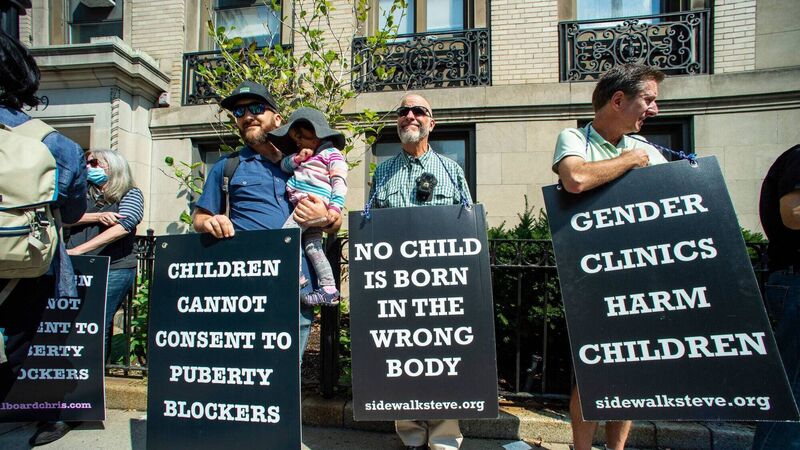Rónán Mullen: Hate speech legislation threatens our right to say what we think

Demonstrators against gender affirmation treatments and surgeries on minors protest outside Boston Children's Hospital, Massachusetts, last September. Picture: Joseph Prezioso/ AFP
A Canadian activist called ‘Billboard Chris’ recently got into a spat with a member of An Garda Síochána in Dublin. The campaigner, Chris Elston, travels the world with a billboard saying “Children cannot consent to puberty blockers. Stop the child abuse.”
This was enough to get him complained about after he walked near the Disney shop in Grafton St. A Garda soon appeared. His lengthy exchange with Mr Elston became a big hit on Twitter, getting over a million hits.













